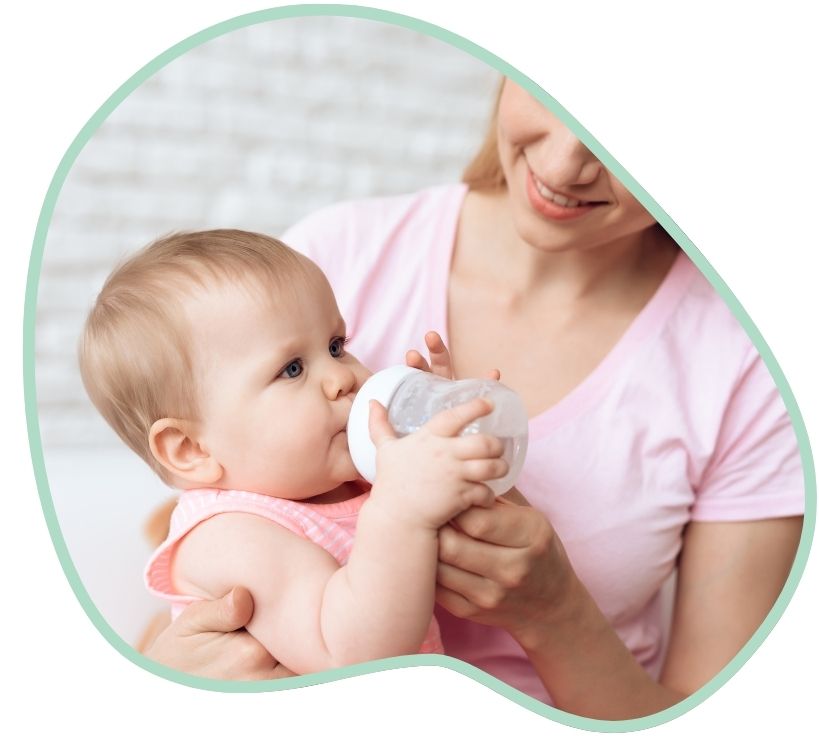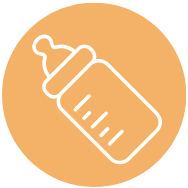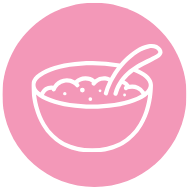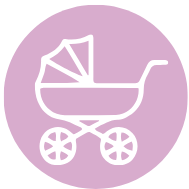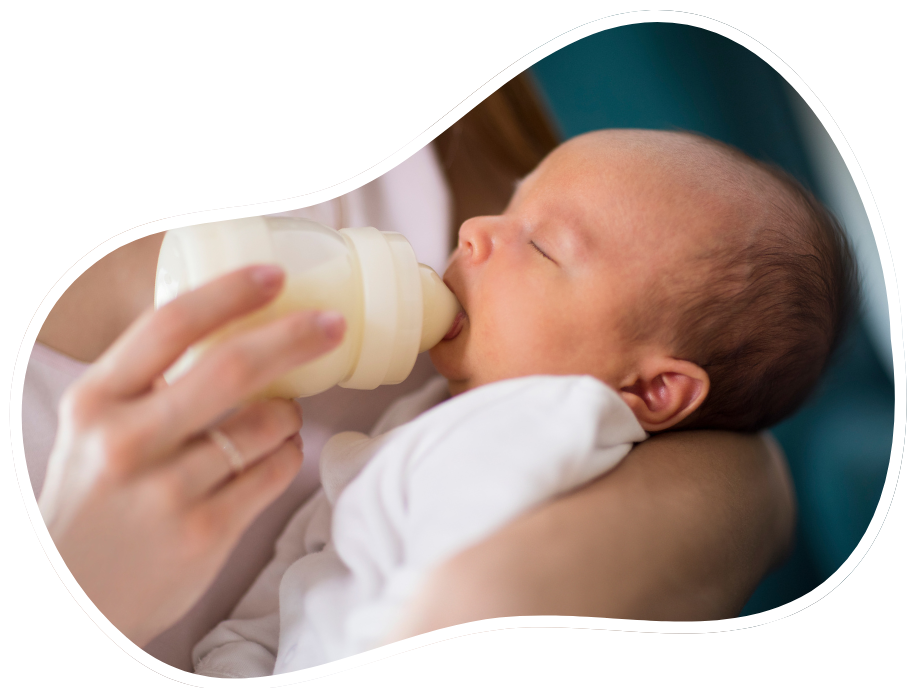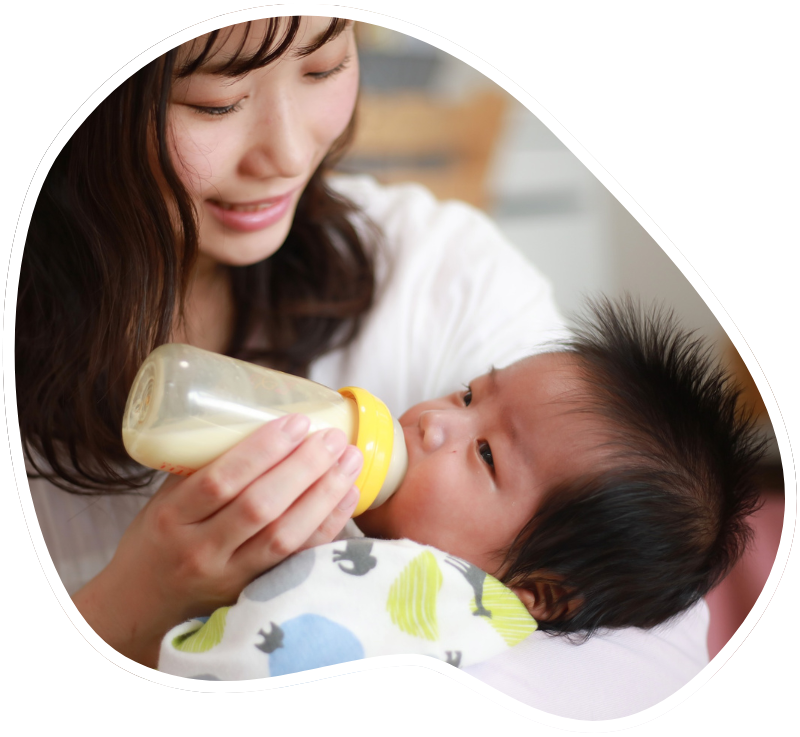How to reduce the risk of heavy metals in your baby's food
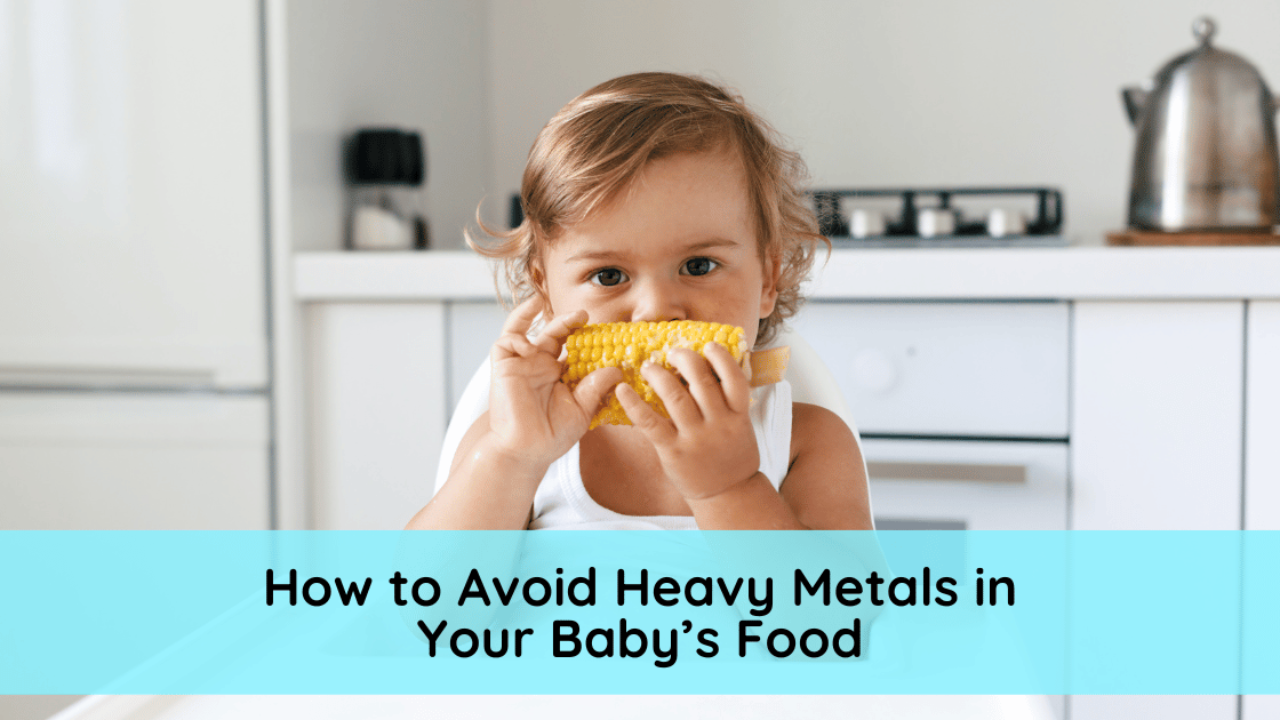
We are always concerned about doing what is best for our babies and toddlers - especially when it comes to nutrition.
That made it extra scary when the reports came out saying that many baby foods tested positive for heavy metals.
I know that I diligently scrolled through the lists and felt betrayed by brands I thought I could trust.
Though I know that heavy metals are part of our soil, as a mother and a nurse, I want to decrease the risk of ingesting large amounts of heavy metals where I can.
Understanding heavy metal exposure in baby food
Heavy metals, including lead, mercury, arsenic, and cadmium, are naturally occurring elements present in the Earth's crust.
They find applications in various industries and are used in products ranging from batteries to cosmetics.
While these metals exist in the environment, exposure to large amounts can impede growth and development.
Babies and toddlers are particularly vulnerable to the toxic effects of heavy metals due to their small size and rapid development.
There can be long-term health complications, such as developmental delays, learning disabilities, and behavioral issues that occur from heavy metal exposure.
Though complications are not common, it is important to be proactive in decreasing heavy metal exposure during this crucial time in development.

Common Sources of Heavy Metal Exposure in Babies and Toddlers
Lead exposure is a significant concern, primarily because it can lurk in unexpected places.
Older homes may contain lead-based paint, which can deteriorate into dust or chips that children might ingest or inhale.
Additionally, lead can be present in some imported toys, pottery, and even urban soil.
Your baby's pediatric provider will likely test your baby's lead levels around their first birthday.
They are more likely to have elevated lead levels around this time since they are touching pretty much everything, including the ground when they are crawling.
Elevated lead levels can cause brain damage, learning and behavioral problems, which is why it is taken so seriously!
I've seen elevated levels from spices imported from overseas and from historic homes.
Mercury is commonly found in certain types of fish, especially predatory fish like shark, swordfish, and king mackerel.
Instead, aim for fish like tuna, shrimp, salmon, haddock, or scallops, which contain low levels of mercury.
The consumption of contaminated fish during pregnancy and early childhood can lead to developmental issues, including damage to the brain and kidneys.
Arsenic exposure can occur through contaminated drinking water, especially in areas with compromised water sources. Moreover, rice and rice-based products, frequently used in baby food, can contain elevated levels of arsenic.
Cadmium exposure can arise from contaminated food items, notably leafy greens, grains, and specific seafood varieties. Tobacco smoke is another source of cadmium exposure, which is especially concerning if you or anyone around your child smokes.
Additional sources of heavy metal exposure include cosmetics (lead in lipstick), home remedies, and certain imported spices or herbs.

Steps to Reduce Heavy Metal Exposure in Babies & Toddlers
Now that we understand the potential risks, let's explore some practical steps parents and caregivers can take to minimize heavy metal exposure in babies and toddlers, with a particular focus on food and drinks.
We are always thinking about what our baby eats. Unfortunately, some foods and drinks are more likely to contain heavy metals - even the "healthier" or organic options.
One way we can decrease large amounts of heavy metals is by serving a variety of foods. This reduces the risk of excessive exposure to a single type of food.
For example, we know that root veggies often contain higher levels of heavy metals than other veggies. You can limit serving foods known to have higher levels to a few times per week versus every day.
When introducing solid foods, consider the following foods that are known to be high in heavy metals:
-
Baby Cereals: Choose baby cereals that are made with oats, whole grains, or quinoa versus rice. Read labels and look for products tested for heavy metals.
-
Rice: Rice is a common baby food ingredient, and can contain arsenic. Rinse rice thoroughly before cooking, and consider diversifying your child's grains, such as using oats, quinoa, or barley. Rice can also be constipating, so it is best to give it in small amounts or skip it altogether.
-
Fruits and Vegetables: Provide a diverse range of fruits and vegetables to minimize exposure to soil contaminants. Washing and peeling produce can further reduce risk. Root vegetables may contain more heavy metals than other veggies because they are grown in the soil. Rotate root veggies with other fruits or veggies.
-
Fruit juice: Apple and other fruit juices are a surprising source of heavy metals. Stick with water and whole fruits versus fruit juice.
-
Certain fish: When offering fish to your child, select varieties with lower mercury levels, such as salmon, trout, and sardines. Limit or entirely avoid high-mercury fish in your child's diet.
The following foods are the least likely to be contaminated with toxic metals (in order of least contaminated):
-
Bananas
-
Grits
-
Branded Meats
-
Butternut Squash
-
Lamb
-
Apples
-
Pork
-
Eggs
-
Oranges
-
Watermelon
I'm often asked if it is safer to prepare food at home. The truth is that we don't know since we are not testing homemade food, but we can assume that the food we eat also contains heavy metals due to farming practices. Organic food is still grown in the soil and still poses a risk.
If preparing baby food at home, be mindful of the ingredients you use. Select low-arsenic grains and alternate fruits and vegetables whenever possible.
Healthy Baby Bright Futures is a non-profit that tests and reports on heavy metals in baby food. They recommend parents limit or rotate the following food products to avoid heavy metals:
-
Cantaloupe – Should remain on the menu but consumed less than daily.
-
Canned Fruit – Better choices are fresh or frozen.
-
Sweet Potato, Potato, Carrot, and Baby Spinach – Rotate these foods and serve a variety (not the same one each day)
-
Peanut Butter – Should remain on the menu but consumed less than daily.
-
Fruit juice – 100% fruit juices are considered safe as long as they are rotated and not consumed daily. Better choices are fresh fruit and water.
-
Oatmeal, Barley, Millet, Farro - Rotate these foods and serve a variety (not the same one each day).
Ensure your home's water supply is tested for contaminants, including lead and arsenic. If necessary, consider using a certified water filter to remove heavy metals. Reverse osmosis filters can remove anything harmful in the water supply, though municipal water sources do rigorous testing.
If anyone in your household smokes, make every effort to quit. Secondhand smoke contains cadmium, which can harm children. Additionally, never smoke near your child.
Schedule routine check-ups with your pediatrician to monitor your child's development and discuss any concerns regarding heavy metal exposure. Lead levels are routinely checked at either the 9 or 12-month well check.
Stay up to date on recalls and safety alerts related to children's products and food items. Government agencies like the FDA regularly provide updates on potential risks.
If your residence contains lead-based paint, consider hiring a professional to assess and remediate any lead hazards. Some cities offer steep discounts on removing lead-based paint in older homes.
The homes most at risk are those built before 1978 when lead paint was banned. You can buy lead testing kits online if you have concerns. Don't forget to test windowsils!
What brands test for heavy metals & what brands are the safest to avoid heavy metals?
The following brands have rigorous testing for heavy metals and are approved by the Clean Label Project:
-
Fresh Bellies
-
Serenity Kids
-
Lil Gourmets
-
Square Baby
-
Tiny Human Food
-
Cerebelly
-
Once Upon a Farm
-
Baby Gourmet
-
Little Spoon
The worst offenders for heavy metals, according to the Healthy Babies Bright Future report
-
Nurture (HappyBABY)
-
Beech-nut
-
Hain Celestial Group, Inc. (Earth’s Best Organic)
-
Gerber
-
Walmart (Parents Choice)
-
Sprout Foods, Inc. (Sprout Organic Foods) - listed as one of the worst offenders with negligible testing
-
Plum Organics
Get the full list of contaminated products with amounts here.
Wow. This is some heavy information, but it is also important when buying baby food.
Here are my biggest takeaways:
-
Always read food labels
-
Avoid rice as much as possible
-
Don't feed your baby the same food every day if possible
-
Avoid juice unless it is indicated by a pediatric provider
-
Find brands within your price range that you trust
Looking for more information on starting solids and choosing safe first foods? Starting Solids 101 is a streamlined digital course where you can learn how to introduce food to your baby as safely as possible. Consider the course a long appointment with a pediatric provider.
*This post may contain affiliate links. If you purchase using my links, I get a small portion of the money which helps me offer you free content. Please consult your pediatric provider for any questions or concerns. This information is for educational purposes only.
free guide
The FREE Printable 150 First Foods Guide
We hate SPAM. We will never sell your information, for any reason.


